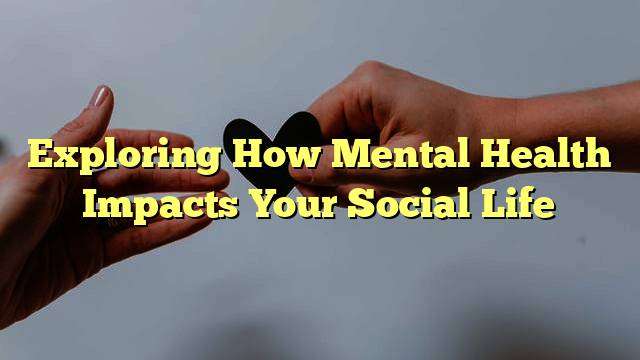How Does Mental Health Affect You Socially?
Mental health has a profound impact on all aspects of life, including social relationships. Poor mental health can significantly disrupt a person’s ability to interact with their children, spouse, relatives, friends, and co-workers. This article explores the many ways in which poor mental health can influence social relationships and explains the importance of seeking help from a mental health professional.
What Is Mental Health?
Mental health refers to a person’s psychological and emotional well-being. It is determined by a variety of factors, including genetics, environment, lifestyle, and experiences. A person’s mental health can be affected by various mental health disorders, such as depression, anxiety, schizophrenia, and bipolar disorder.
How Can Poor Mental Health Affect Social Relationships?
Poor mental health can have a profound impact on social relationships. People with poor mental health may experience difficulty in forming or maintaining relationships due to the following factors:
Social Isolation
Social isolation is a common symptom of poor mental health. People with poor mental health often withdraw from social activities and interactions, which can lead to loneliness and a lack of meaningful connections with others. This can be particularly damaging to relationships with family and friends, as it can be difficult to relate to someone who is not engaging in the same activities or participating in the same conversations.
Difficulty Managing Emotions
People with poor mental health often struggle to manage their emotions. They may experience excessive sadness, anger, or anxiety which can make it difficult to connect with others. Unmanaged emotions can also lead to outbursts and confrontations, which can damage relationships with family, friends, and co-workers.
Difficulty Communicating
People with poor mental health may experience difficulty communicating their thoughts and feelings to others. This can be especially true for those suffering from depression, as the lack of motivation and energy can make it difficult to engage in meaningful conversations. Difficulty communicating can lead to misunderstandings, conflict, and hurt feelings, all of which can damage relationships.
Why Is It Important To Seek Help For Poor Mental Health?
It is important to seek help for poor mental health as soon as possible, as the longer it is left untreated, the more difficult it can be to manage. Mental health professionals can help to diagnose and treat mental health disorders, as well as provide strategies for managing symptoms and improving relationships. Treatment may include medication, psychotherapy, or a combination of both.
Conclusion
Poor mental health can have a profound impact on social relationships. It can lead to social isolation, difficulty managing emotions, and difficulty communicating. It is important to seek help from a mental health professional as soon as possible, as the longer it is left untreated, the more difficult it can be to manage. With the right treatment and support, people with poor mental health can learn to manage their symptoms and improve their relationships with those around them.




